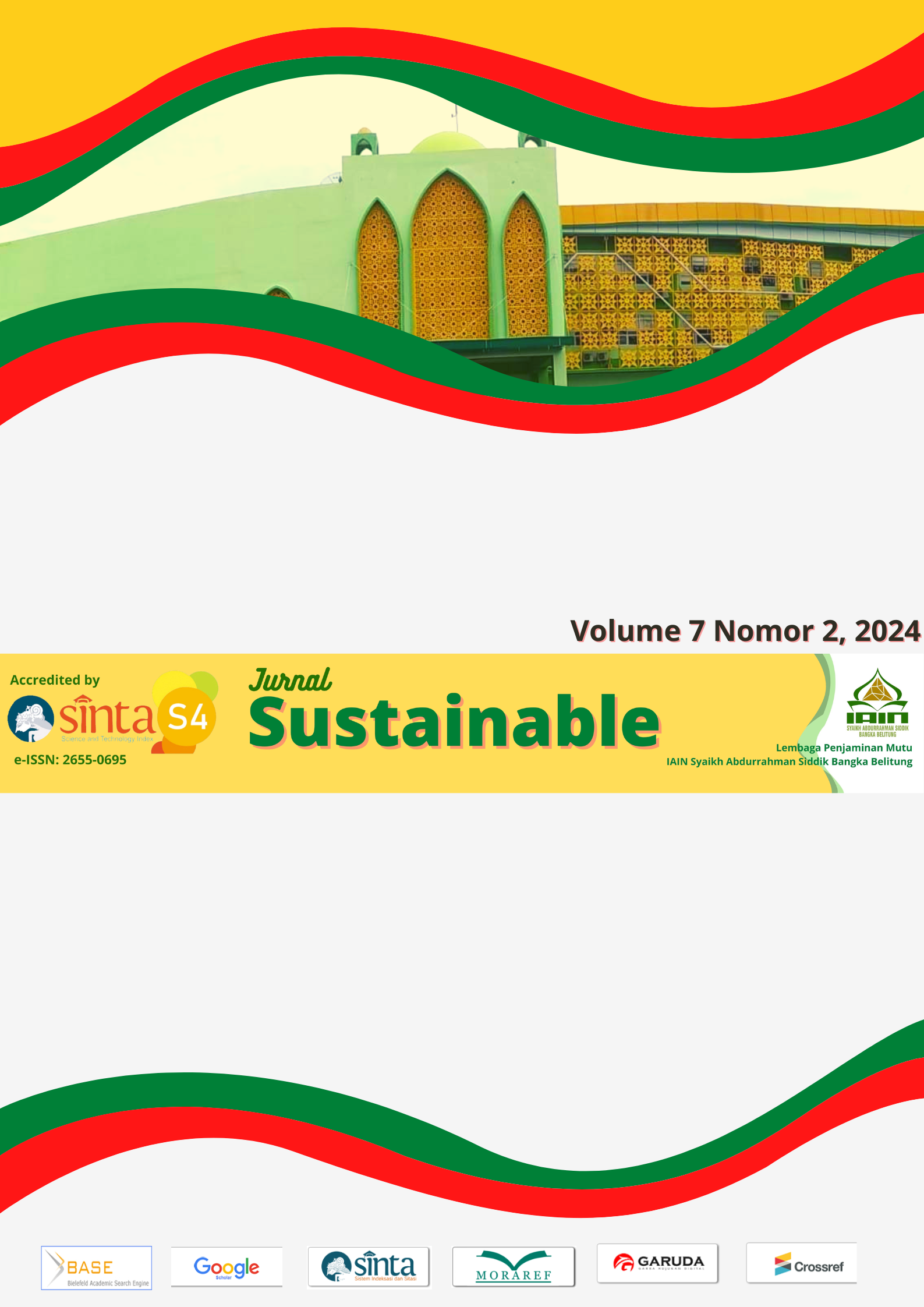The Influence of Spiritual Intelligence on Learning Outcomes in Islamic Religious Education at SMA 1 Mendo Barat
Abstract
This research aims to describe the influence of spiritual intelligence on Islamic religious education learning outcomes at SMA Negeri 1 Mendo Barat. This research is research that uses associative quantitative research methods, namely to determine the influence or causal relationships. Meanwhile, the variables in this study are independent variables (Independent So there were 177 students who were sampled using the problem sloving technique. Data collection techniques used documentation and questionnaires in this study with scoring using a Likert scale. Meanwhile, the data analysis technique in this study used the Data Analysis Prerequisite Test, namely the Normality Test and Linearity Test. Then use Hypothesis Testing. In this case, use Compare Means, which is assisted by the SPSS version 25 program. Based on the research results, it is known that the hypothesis test results have a sig value of 0.000 < 0.05, meaning that Ha is accepted and Ho is rejected. So it can be concluded that there is an influence of spiritual intelligence on learning outcomes for Islamic religious education at SMA Negeri 1 Mendo Barat. The level of relationship between the Spiritual Intelligence variable (X) and Learning Outcomes (Y) obtained an R value (correlation coefficient value) of 0.497, which means that the coefficient level of the Spiritual Intelligence variable is considered sufficient for the Islamic Religious Education Learning Outcomes variable. Meanwhile, R Square with the percentage level of relationship between variable X (Spiritual Intelligence) and variable Y (Islamic Religious Education Learning Outcomes) is 24.7%.
Downloads
Copyright (c) 2024 Ratna Dewi, Syarifah HR DG Tujuh

This work is licensed under a Creative Commons Attribution 4.0 International License.






.png)
